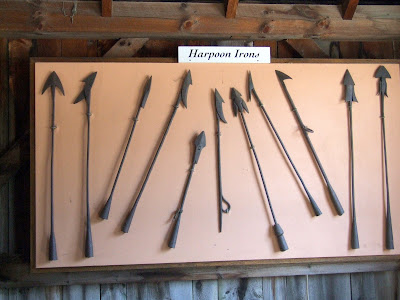Sunstroke (part 2)
 Friday, February 18, 2011 at 15:32
Friday, February 18, 2011 at 15:32 The conclusion to a short story by this Russian author. You can read the original here.
The bazaar was already dispersing. For some reason he walked along the fresh manure between the carts, between the carts with cucumbers, among the new tureens and pots, and the old women seated on the ground beckoned to him, constantly interrupting one another, picked up the pots with their hands and knocked and rang them with their fingers to indicate their fine quality, while the men deafened him, screaming: "First-rate cucumbers, my lord, absolutely first-rate!" All of this was so dumb and so senseless that he made haste from the bazaar.
 He went into the cathedral where loud, merry and powerful singing could be heard – as if the singers were conscious of having fulfilled a duty – and then walked on for a while, turning around the small, hot and neglected little garden on the edge of the hill above the bright steely expanse of the river. The shoulder straps and buttons of his tunic got so hot that he could no longer touch them. His hatband was wet inside with sweat and his face felt like it was aflame. Returning to the hotel he entered the large, empty and cool dining room on the lower floor with great relish. And with equal relish he removed his hat and sat down at the table beside the open window through which the heat passed. Nevertheless the air was still blowing and he ordered a bowl of botvinya with ice. Everything was good, in everything one could find unlimited happiness and great joy. Even in this oppressive heat and amidst all the smells of the bazaar, in this unknown little town and in this old district hotel she was there, this joy, and his heart simply broke into pieces.
He went into the cathedral where loud, merry and powerful singing could be heard – as if the singers were conscious of having fulfilled a duty – and then walked on for a while, turning around the small, hot and neglected little garden on the edge of the hill above the bright steely expanse of the river. The shoulder straps and buttons of his tunic got so hot that he could no longer touch them. His hatband was wet inside with sweat and his face felt like it was aflame. Returning to the hotel he entered the large, empty and cool dining room on the lower floor with great relish. And with equal relish he removed his hat and sat down at the table beside the open window through which the heat passed. Nevertheless the air was still blowing and he ordered a bowl of botvinya with ice. Everything was good, in everything one could find unlimited happiness and great joy. Even in this oppressive heat and amidst all the smells of the bazaar, in this unknown little town and in this old district hotel she was there, this joy, and his heart simply broke into pieces.
He drank a few shots of vodka, nibbled on some undersalted cucumbers and dill and, without much reflection, felt that tomorrow he would perish if by some miracle it were possible to bring her back and spend with her one more day, today. And he would spend it with her only because he had something to tell her, something to prove to her, to convince her how his love for her was both torture and ecstasy. Prove what? Convince her of what? He did not know why, but this was more necessary than life itself.
"My nerves are completely shot!" he said, pouring himself a fifth shot of vodka.
He pushed the botvinya away from himself, ordered a cup of black coffee and began to smoke while his thoughts grew more tense. What was he supposed to do now? How could he rid himself of this sudden and unexpected love? But ridding himself of it – and this he felt far too powerfully – was impossible. And then he suddenly got up again, took up his hat and riding crop and, having asked where the post office was, scurried off in that direction with a telegram all planned out in his head: "Henceforth will all my life – forever, to the grave – be yours, and in your power." Once he reached the old building and its high walls that housed both the post office and the telegraph, however, he stopped in horror. He knew the town she lived in; he knew that he had a husband and a three-year-old daughter; but he did not know her name, neither first nor last! Several times yesterday he had asked her about it, at lunch and in the hotel, and every time she had laughed and said:
"And why do you need to know who I am or what my name is?"
On the corner beside the post office there was a window to a photo shop. He stood and gazed for a long while at a large portrait of a soldier in thick epaulettes, with bulging eyes, a low forehead, suspiciously magnificent sideburns and a barrel chest simply littered with medals. How absurd and frightening is the everyday and the habitual once the heart is struck – yes, struck, now he understood it – by this "sunstroke," by this love too powerful, by this happiness too great! He looked at a pair of newlyweds – a young man in a long frock coat and white necktie, his hair almost spiked like a hedgehog's, standing out to the front arm-in-arm with a young woman in wedding dress silk – then shifted his eyes to the portrait of a pretty, sprightly girl in a student's cap cocked to the side. Tired of the torturous envy of all these unsuffering strangers, he began to look tensely along the road.
"Where should I go? What should I do?"
The street was completely empty. All the buildings were the same – white, two floors, commercial, with large gardens – and it seemed not a soul lived there; the thick white dust lay upon the bridge road, and all of this blinded him, all of this was filled with the hot, flaming and joyful sun, a sun that here, however, seemed aimless. In the distance the street rose, bent and leaned with its own reflection against the cloudless, greyish firmament. In this there was something southern that reminded him of Sevastopol, Kerch ... Anapa. This was especially unbearable. And the lieutenant, his head lowered, squinting from the light, concentrating on where his feet were going, staggering, stumbling, clicking one spur against another, then began to walk back.
He returned to the hotel as fatigued as if he had made a great trek somewhere in Turkistan or in the Sahara. Gathering his last bit of energy, he entered his large, empty room. The room had already been made and was now deprived of the final traces of her; only a single hairpin which she had forgotten lay upon the night stand! He removed his tunic and looked at himself in the mirror: his face – that ordinary officer face, grey from the heat with his white moustache burnt by the sun and the somewhat light blue whiteness of his eyes which now in the heat looked even whiter – all of this assumed some crazed, excited expression, and in his thin white shirt with the starched standing collar there was something youthful and profoundly unhappy.
He lay on his back on the bed and threw his dusty boots in a heap. The windows were open, and the curtains puffed outwards as a light breeze blew through them from time to time, introducing into the room the heat of the warmed iron roofs and of this whole luminous and now completely abandoned and silent Volga realm. He lay there, his hands crossed behind his head, and stared straight ahead. Then he gritted his teeth, shut his eyelids with the sensation that tears were rolling down his cheek, and finally fell asleep. When he opened his eyes again, a yellow evening sun was already turning red behind the curtains. The wind had died down. It was stuffy and dry in the room like an oven. And now he remembered the day before and this morning as if they had happened ten years ago.
He got up slowly, washed himself slowly, opened the curtains, called and asked for a samovar and the bill, and for a long time sat there drinking tea and lemon. Then he called for the coachman and his things to be taken, and sitting on the coach again, on its rusty, burnt seat, he gave the footman a whole five rubles.
"My lord, I believe I had the honor of bringing you here last night!" said the coachman gleefully as he took up the reins.
When they got to the pier a blue summer night was already settling on the Volga, and lights of a variety of colors were scattered in the river, and the lights hung from the masts of an approaching steamer.
"Delivered just in time!" said the coachman ingratiatingly.
The lieutenant gave him five rubles as well, took his ticket and walked out onto the pier. Just like yesterday there was a soft thud against the pier's berth and his head spun mildly as he steadied himself. Then there came the end flight, the roiling, running sound before the water beneath the wheels of a retreating steamer. And all this seemed extraordinarily inviting, the fact that the steamer was crowded with people, with lights everywhere and scents wafting from its kitchen.
A minute later they had gone further and higher to the place where she had been taken that very morning.
A dark summer's twilight faded before him in the distance, a dusky, sleepy and multicolored vision reflected in the river, and somewhere shined a trembling ripple below the horizon, below this twilight, and the lights continued to shine, dissipating in the surrounding darkness.
And the lieutenant sat below the awning on the deck feeling as if he had aged ten years.



